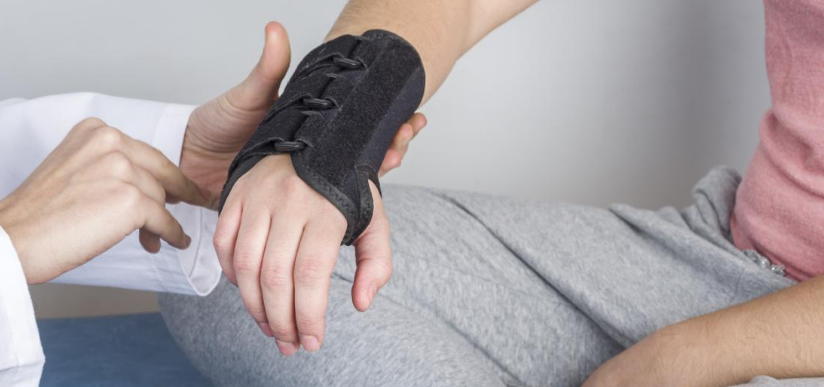Paresthesia has different causes and, unfortunately, they’re many and vary a lot. Some of the origins of paresthesia stand in the central nervous processes which can meet with “accidental trauma, surgery, inflammations, tumors, general or systemic affections, degenerative processes of the TM Articulation or of the cervical vertebrae” (1). Treatment is of surgical or conservative nature, but it seems to be quite hard to choose the adequate treatment since paresthesia is of a quite “whimsical” nature and the causes aren’t always so clear. What we’re going to discuss today is exactly this: the multiple causes of paresthesia and how to single them out. Since treatment is solely dependent on the cause of paresthesia, the causes behind it are of the utmost importance.

Table of Contents
Paresthesia present in patients with healed burns
Patients with long-healed burns can experience paresthesia in the affected areas. This is what studies show. Painful and paresthesic sensations such as “tingling, stiffness, cold sensations and numbness” were reported as being present in the scarred tissue, in 82% of the patients observed in a medical study. Another 35% of them complained of pain in the affected area. The prevalance of these sensations is not influenced by demographics such as age, sex, etiology of the burns, but rather by the “burn size and skin grafting”. All the patients in this study were interviewed “1 year or more after the burn injury” (2)
Thus, one cause of paresthesia which still needs to be explored is the healed scar tissues from burns. This could also be the cause of a sudden pins and needles feeling in the once-affected area.
Most frequent chronic paresthesia causes
At the most basic level, paresthesia can be described as the result of a pressure on a nerve. Once that pressure is removed, the paresthesia feeling goes away. Anyways, there are many underlying causes which can cause chronic paresthesia which doesn’t go away that simple. Chronic paresthesia can be caused by:
- Nerve damage caused by an injury or accident
- In endodontics cases, “long-lasting paresthesia of the right side of the lower lip occurred after using Endomethasone as a sealer.” (3)
- A stroke, even a mini-stroke can cause brain damage due to the fact that blood flow is suddenly cut off from reaching your brain and can lead to paresthesia
- Multiple Sclerosis is a chronic disease with autoimmune impact on both the mind and body which can result in fatigue, depression and paresthesia. (4)
- Diabetes- This affliction of the blood sugar can lead to nerve damages in time and can also cause paresthesia
- An overused pinched nerve in your neck, arm or shoulder can also cause various episodes of paresthesia
- Sciatica. The sciatic nerve goes from your lower pelvis to your buttocks and legs. Sciatica or compression of the sciatic nerve can also cause paresthesia. One medical case we found is that of a minor injury resulting into pain and paresthesia in the left leg because of the sciatic nerve being rotated and compressed by “a tough band of connective tissue”. This was resolved through surgical intervention and all the patient’s discomfort disappeared after 5 months. (5)
- The Carpal tunnel syndrome is “a repetitive motion disorder” (6). It manifests itself through the narrowing down of the small tunnel going from the wrist to the lower palm which causes pain, numbness.
- Low levels of vitamins, especially B12 can also cause paresthesia
- Intra-cerebral hemorrhage Paresthesia can also act as a symptom for acute brain hematoma, both epidural or subdural or even hemorrhage in the intra-cerebral space (7)
- Brain tumor. If the sympotms include a sudden numbness accompanied by headache, nause or vomiting or vision problems, this could signal a possible brain tumor and needs urgent attention. (7) Now, you shouldn’t give yourself a diagnosis based on what you read on the Internet. What you should do is visit a doctor and do a complete medical check to signal out the possibilities.
As you could see, there are various cases which can lead to paresthesia, whether transient or chronic. Transient or temporary paresthesia is common in our everyday life and it manifests through that pins and needles sensation and temporary numbness of the affected area due to incorrect position or to standing too much into a position which can put pressure on the nerve. Chronic paresthesia doesn’t go away that easy and needs to be checked by a doctor.

